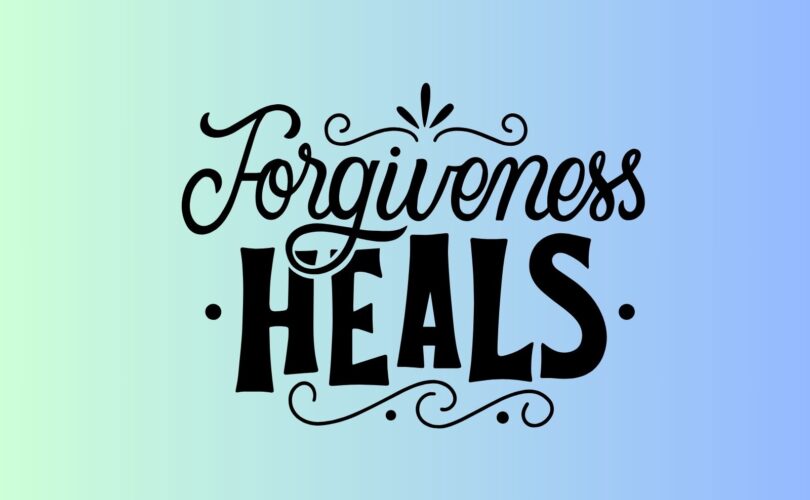While dealing with regret isn’t fun, it is a common human experience. At some point or another, all people will realize that some aspect of their past makes them experience regret or shame. Some of those difficult experiences will make them feel regretful or embarrassed; other experiences might make them feel like holding a grudge against someone who wronged them.
Regardless of what is making you experience regret, anger, or frustration, learning how to deal with those feelings – and even give forgiveness – is crucial for your overall sense of peace and well-being. If you struggle to deal with regret and forgiveness, consider using these ten tips for a better healing journey.
1| Acknowledge what you feel without being judgmental.
Emotions surrounding regret and forgiveness can be extremely challenging to navigate. Instead of allowing your emotions to make you feel even worse, focus on acknowledging what you feel without judging yourself. remember that it is normal to have big emotions about major events that impacted you negatively. let yourself feel whatever it is you are feeling without the added weight of self judgment.
2| Write about the situation.
Spend some time writing about what you experienced in life. As you write out the details, you can begin reflecting on the situation and processing what really happened. If you are feeling regretful or trying to navigate the act of forgiving yourself or someone else for a past event, writing about it can help you organize your thoughts and better understand what you are feeling.
3| Shift your perspective with time.
Your perspective on any given event will change over time. As you think about your past regrets, consider how you feel about them now that time has passed. You will likely discover that you feel differently than you did before. allow your perspective to shift with time.
4| Engage in self-forgiveness.
Many people struggle with regret because they do not want to forgive themselves for whatever transpired in the past. Whether you purposely did something wrong or accidentally made a mistake, acknowledge what went wrong and offer yourself some forgiveness. Learning how to extend this olive branch to yourself is the first step toward working through your difficult feelings surrounding your regrets. Being hard on yourself will not make the situation feel any better.
5| Talk to someone you trust.
Whether you speak to a friend, a family member, or a mental health professional, consider talking to someone you trust about your feelings. Talking about having regrets or needing to extend forgiveness to someone else is a great way to gain an outsider’s perspective on a situation that has likely been largely self-contained in your own mind.
6| Turn your regrets into growth.
As you think about your regrets, think about what you learned from them. Every negative situation has the power to teach you a valuable life lesson that you can carry forward with you in life. When you think about what makes you feel regretful, try focusing your attention on what you learned from the situation. Consider that knowledge valuable and vow to take it with you as you proceed into the future.
7| Seek or offer forgiveness.
If you wronged someone in the past, consider reaching out to them to discuss forgiveness (or at the very least, to offer your heartfelt apology). If you are struggling to forgive yourself for something, consider extending that gift to yourself. Seeking and offering forgiveness can give you a profound sense of closure on a difficult situation that left you feeling regretful.
8| Create new meaning that brings positivity out of the experience.
If you went through a challenging life situation that left you with feelings of regret, try to create some new meaning that brings positivity out of the experience. For example, if you made a mistake in your youth, you can focus your energy on mentoring today’s youth about your experience and how they can avoid making those same mistakes in their own lives. You can use your knowledge and turn your regretful experience into something helpful and positive.
9| Focus on being mindful and present.
If you focus your energy on being mindful and present in the current moment, it is much harder to ruminate over past regrets. Focus on the here and now, and what you can do to make your current situation better and happier. This can help you shift your focus away from the past and on the present.
10| Let it go, again and again.
Even when you were finally able to let go of past regrets, this doesn’t mean you are fully over them. You may need to engage in the act of letting it all go again and again, and that’s okay. Having to release your regrets and offer forgiveness multiple times doesn’t mean you failed. Instead, it means you are making a positive and healthy choice over and over again for your own mental health and well-being.
Final Thoughts
Regret and forgiveness are heavy emotions—but they don’t have to weigh down your later years. In fact, this stage of life can be the perfect time to release what no longer serves you and step into peace, clarity, and emotional freedom. Whether you’re forgiving others or learning to be kinder to yourself, remember: every day is a fresh chance to grow, heal, and embrace the life ahead with open arms.







